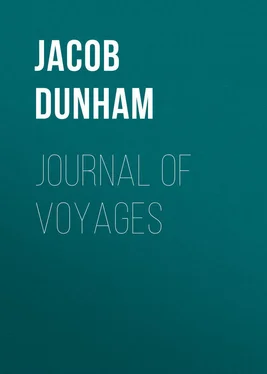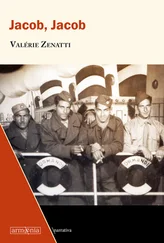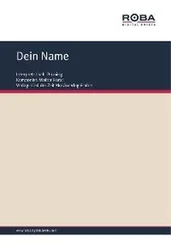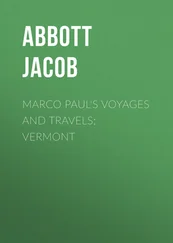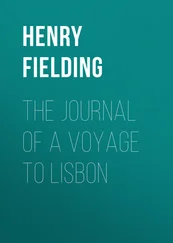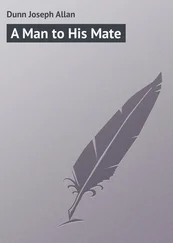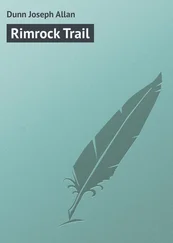Jacob Dunham - Journal of Voyages
Здесь есть возможность читать онлайн «Jacob Dunham - Journal of Voyages» — ознакомительный отрывок электронной книги совершенно бесплатно, а после прочтения отрывка купить полную версию. В некоторых случаях можно слушать аудио, скачать через торрент в формате fb2 и присутствует краткое содержание. Жанр: foreign_antique, foreign_prose, на английском языке. Описание произведения, (предисловие) а так же отзывы посетителей доступны на портале библиотеки ЛибКат.
- Название:Journal of Voyages
- Автор:
- Жанр:
- Год:неизвестен
- ISBN:нет данных
- Рейтинг книги:3 / 5. Голосов: 1
-
Избранное:Добавить в избранное
- Отзывы:
-
Ваша оценка:
- 60
- 1
- 2
- 3
- 4
- 5
Journal of Voyages: краткое содержание, описание и аннотация
Предлагаем к чтению аннотацию, описание, краткое содержание или предисловие (зависит от того, что написал сам автор книги «Journal of Voyages»). Если вы не нашли необходимую информацию о книге — напишите в комментариях, мы постараемся отыскать её.
Journal of Voyages — читать онлайн ознакомительный отрывок
Ниже представлен текст книги, разбитый по страницам. Система сохранения места последней прочитанной страницы, позволяет с удобством читать онлайн бесплатно книгу «Journal of Voyages», без необходимости каждый раз заново искать на чём Вы остановились. Поставьте закладку, и сможете в любой момент перейти на страницу, на которой закончили чтение.
Интервал:
Закладка:
Miss Sarah Taylor was educated in Jamaica, and had the appearance of a lady of some accomplishments, although she was living as a concubine.
Captain Mitchell was a man of some education, about five feet six inches high, dark hair and eyes, and had the appearance of a gentleman; was very liberal to unfortunate seamen, and one of the greatest tyrants to exercise authority over them that I have ever heard of. He had at that time two sailors lying in the stocks near Taylor's house, with their ancles two feet above the ground, they lying out of doors on their backs, their bodies exposed to the sun for two or three days. He informed me that he had captured a prize some time previous, and the prize-master and crew had run away with the vessel; that he then took an oath to shoot any of the crew if he ever saw them again. A few months after, he visited Corn Island, where one of the crew happened to arrive. Some of the inhabitants cautioned the man to keep out of his sight. He boastingly replied that Mitchell dared not shoot him. Mitchell said he hoped the man would not appear in his presence, as he did not want to kill him. "But," said he, "one day when I was taking a walk on the island he (knowing I had made the threat) presented himself a short distance before me, when I took a musket and shot him dead."
Some of the inhabitants informed me that the negro cook belonging on board his vessel asked him one day what he should cook for his dinner. Mitchell told him to kill a pig which they had on board. The cook did not understand his answer, and knowing his ungovernable temper, dared not ask him a second time, but built his fire and had his water boiling. At twelve o'clock Mitchell asked him what he was cooking for dinner, to which the cook replied, "I did not understand what you wanted for dinner." Mitchell seized him by the hair of his head with one hand, and with a ladle in the other poured the boiling water on him until he scalded him to death. One of the sailors told him he thought that was hard usage. Mitchell immediately drew a pistol from his belt and shot the sailor dead and then threw him overboard.
Captain Mitchell informed me that some years since he was cast away on the shore of the Pacific Ocean, and found it necessary to cross over the country by land to the Atlantic coast to get home, that he was arrested for not having a passport to travel. He was thrown into prison and for some misdemeanor was put into the stocks, where he had to lie on his back for some months, and while thus confined he had taken an oath that he would never die in peace until he had killed one hundred Spaniards with his own hands. Some three years after this time I accosted him in a humorous manner, by saying, "Mitchell how many have you due now?" He replied, "Seventeen, by G – d, Dunham, I have killed eighty-three with my own hands."
CHAPTER IV
After ten days successful trade at Old Providence, I got under weigh and proceeded towards Musquito Shore, and in the day-time ran in near the land, but could not discover any settlements. I kept beating to the northward, keeping as near the shore as safety would admit, with a good look-out for houses or canoes. By my observations I found a strong current setting to the southward. After beating up three days, we discovered a number of Indian houses near the entrance of a bay which appeared like a good harbor. From my reckoning I supposed this place to be Cape Gracios a Dios, (mercy of God.) I carefully sounded my way into the harbor and anchored.
Soon after we anchored, a canoe containing six or eight Indians, having a stripe of hair about three inches broad, extending from one ear to the other across the top of their heads, which were shaved close to the skin, came out to our vessel. They spoke to us in broken English. I asked them if this place was called the Cape. They answered "Yes." We discovered an English Island flag flying on shore near the largest house, and asking them who owned the house where the flag was flying; they answered "Admiral Dalby;" looking at me with some surprise, they exclaimed, "Don't you know Admiral Dalby?"
Supposing I had to appear before some great chief, whose name sounded so loud in my ears, I put on my best go-a-shore suit, to use an old sailor phrase, and treating the Indians with rum, &c. went on shore with them, and was conducted to the house of Admiral Dalby, whom I found dressed in a clean shirt and white pantaloons, a cotton handkerchief tied on his head, and an old English Admiral's red vest, with some old lace trimmings, having long skirts extending nearly to his knees, and without shoes. Seeing his majestic appearance, I approached him with all the politeness of a French dancing-master. After the ceremonies were ended, he asked me what country I came from, and what articles I wanted to purchase. I replied that I came from New-York, in North America, and that I belonged to the same continent that he did; that I wanted to purchase tortoise-shell, cow-hides, deer-skins, gum elastic, gum copal, cochineal, &c. We spent some time in ascertaining the Indian names of the gums, &c. before he understood what articles I wanted to purchase. He said, "Indian man and American man all one country belongs to, all the same as brothers, me right king's officer, all white men must help um; me good man, have good head, savy good? this place all me belong to. To-morrow I send plenty men to fetch you skins, gums, and every thing you want."
After all our arrangements were completed, it being the first time I ever had the honor of negotiating with an admiral , I invited him to go on board my vessel and drink tea with me; which invitation he readily accepted. On our arrival on board, my little table was soon placed on deck under an awning. The cook supplied us with the best our little sloop afforded; the admiral was seated at the head of the table, and waited on in the politest manner. After he had finished his tea, he drank a few glasses of rum and returned to his home.
When the cook set his table the next morning, he missed his tea spoons. Diligent search was made for them, but they could not be found. We charged the poor old cook with throwing them overboard in shaking out his crumbs of the table-cloth, which he strongly denied. The spoons cost about two or three cents apiece. The next day I called at the admiral's house, where I saw his children playing with my spoons. On inquiring I found the admiral had carried them on shore in his breeches pocket.
I remained at the Cape about one week, where I purchased a small quantity of tortoise-shell, some hides, deer-skins, tiger-skins, gums, &c. My owners had given me orders on my arrival in that country to procure an Indian pilot who was well acquainted with the coast.
My old friend, Admiral Dalby, procured me a pilot to conduct me to Pearl Key Lagoon, where most of the inhabitants spoke good English. I had a letter of introduction to an inhabitant of that place, whose name was Edward Patterson, a native of Curracoa, who had lived with the Musquitoes many years, and intermarried with them. The pilot and his son-in-law came on board. I was compelled to hire the latter that he might assist his father-in-law in returning with his canoe. The price agreed on was ten yards of Osnabergs to each; no difference in the price, whether the voyage was performed in one week, or I detained him three months: it was all the same.
We weighed anchor and proceeded to the southward, intending to stop at every settlement between the Cape and Pearl Key Lagoon. The next day we anchored at Sandy Bay. Soon after, we were visited by Governor Clemente, Admiral Hammer, General McLean, and many petty officers and citizens. After treating with a few gallons of rum, by way of introduction, I opened a brisk trade with them, bartering my goods for the same kind of articles I had bought at the Cape. The governor brought on board with him one of his nine living wives. After remaining here three days, we got under weigh and steered southward, keeping near the land, under the direction of the pilot. In the evening I began to doubt his skill, and often hove the lead to satisfy myself, the pilot being stationed forward to keep a good look-out. About ten o'clock I heard the sound of out, out, out. I looked under the lee of the boom and discovered we were near the breakers. We attempted to tack ship, but found it impossible. In a few moments we were driven upon the reef, unshipping our rudder and thumping so hard that I expected she would break in pieces. About an hour after, she beat over the shoal into nine feet water, where we came to anchor. The next day I sounded a passage out between the shoals. In heaving the vessel through the passage we broke our largest anchor, and finding it impossible to save her, hoisted the jib and ran her on shore. When the wind abated we landed our sails, dry goods and hardware. We built a comfortable tent, which protected our goods from the rains which visit that country almost every day from May until November. We found ourselves near the mouth of a river called Waa-waa, some fifteen miles from the residence of Governor Clemente. After remaining here a few days I sent the pilot to the governor's residence, claiming his protection and requesting him to furnish me with men and canoes to transport my goods to Pearl Key Lagoon, and I would pay them a liberal compensation for their services. The messenger returned with an answer, that the governor had gone on an excursion through his dominions, and was not expected to return in less than two or three weeks. We passed our time in shooting deer, conies, parrots, boobies, gulls, &c. and catching fish, which we found in abundance.
Читать дальшеИнтервал:
Закладка:
Похожие книги на «Journal of Voyages»
Представляем Вашему вниманию похожие книги на «Journal of Voyages» списком для выбора. Мы отобрали схожую по названию и смыслу литературу в надежде предоставить читателям больше вариантов отыскать новые, интересные, ещё непрочитанные произведения.
Обсуждение, отзывы о книге «Journal of Voyages» и просто собственные мнения читателей. Оставьте ваши комментарии, напишите, что Вы думаете о произведении, его смысле или главных героях. Укажите что конкретно понравилось, а что нет, и почему Вы так считаете.
